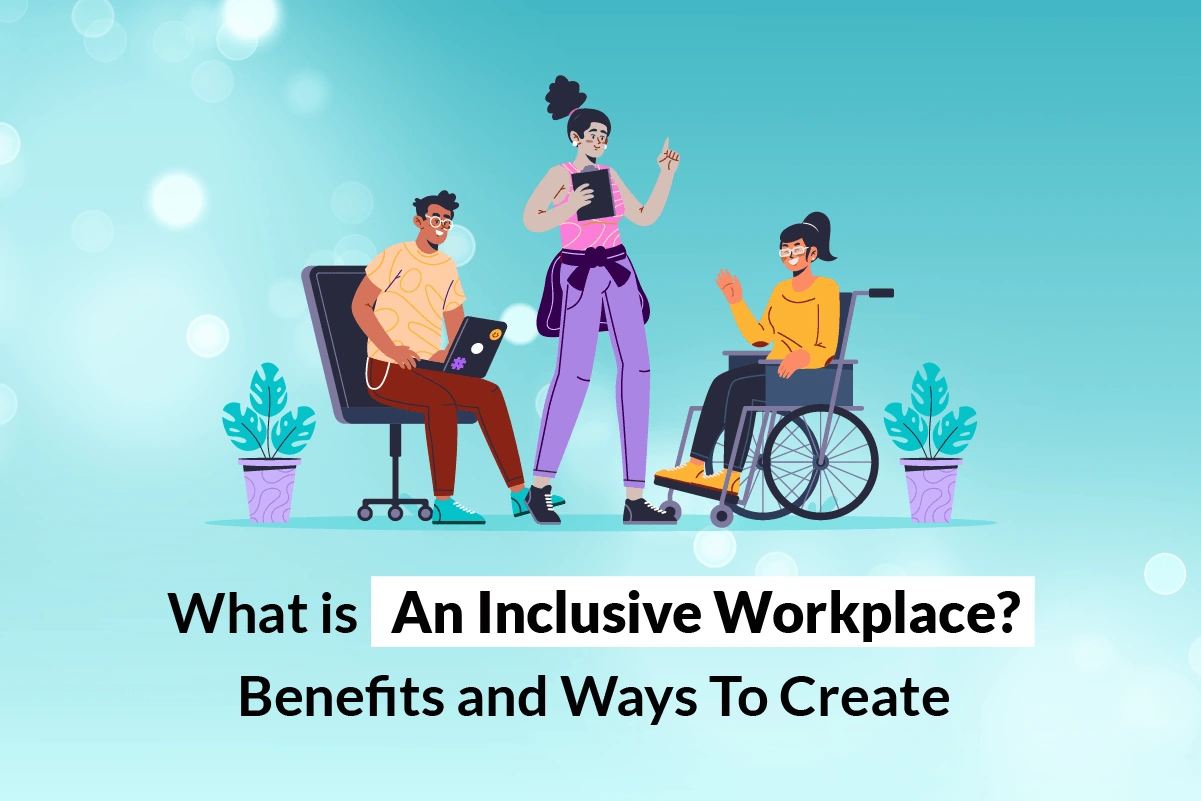Creating an inclusive workplace is crucial for the success and growth of any organization. An inclusive workplace ensures that all employees feel valued, respected, and heard, regardless of their race, gender, age, religion, or sexual orientation. It fosters a sense of belonging, promotes collaboration, and leads to increased employee morale and productivity. In this comprehensive guide, we will explore the key strategies and best practices for creating an inclusive workplace, and how it can benefit your organization.
What is An Inclusive Workplace?
An inclusive workplace is a work environment that welcomes and respects individuals of all backgrounds, cultures, and identities. It is a place where everyone feels valued, supported, and empowered to contribute their unique skills and perspectives. In an inclusive workplace, diversity is not only accepted but celebrated, and employees are given equal opportunities to grow and succeed regardless of their differences.

The Benefits of An Inclusive Workplace
An inclusive workplace has numerous benefits, including:
Increased Employee Engagement and Productivity
An inclusive workplace fosters a sense of belonging among employees, which leads to increased engagement and productivity. When employees feel valued and included, they are more likely to be invested in the success of the organization and motivated to perform at their best.
Enhanced Creativity And Innovation
When employees feel that their unique perspectives and experiences are valued and respected, they are more likely to feel empowered to share their ideas and opinions. An inclusive workplace fosters a culture of openness and creativity, which can lead to greater innovation and problem-solving.
By encouraging diverse perspectives and collaboration, an inclusive workplace can generate fresh and innovative ideas that may not have been considered otherwise. This can lead to a competitive advantage for the organization and enhance its reputation as an industry leader.
Find out more about “Diversity Metrics In Recruitment“

Higher Retention Rates and Lower Turnover Costs
When it comes to building a thriving workforce, creating an environment where employees feel genuinely valued and included is key. Imagine having a team that is loyal, committed, and dedicated to your organization’s values and goals. Not only does this foster a stable and productive workforce, but it also results in cost savings by reducing turnover and the need for constant recruitment and training.
Investing in the happiness and well-being of your employees pays off in the long run, boosting your company’s bottom line while cultivating a team that is motivated, engaged, and invested in your organization’s success.
Improved Company Reputation and Brand Image
Imagine being part of a workplace that celebrates diversity and fosters inclusivity at every level. Not only does it benefit you as an employee, but it also positively impacts the reputation and brand image of your company. By creating an inclusive workplace, your company sends a powerful message that it values fairness, equity, and diversity, which resonates with both employees and customers alike.
This can result in increased customer loyalty and even attract new customers who prioritize inclusivity in their purchasing decisions. Moreover, a positive brand image is a magnet for top talent, leading to a more talented and diverse workforce, which ultimately translates into increased profitability and success for your company.
Challenges When Creating an Inclusive Workplace
There are several challenges that organizations may face when trying to create an inclusive workplace, including:
Lack of Diversity
A major challenge when creating an inclusive workplace is a lack of diversity. Companies must actively work to attract and hire a diverse workforce to ensure that all voices are represented and included.
This can involve taking a closer look at recruiting practices, job descriptions, and interview processes to eliminate any potential biases. Diverse hiring practices can lead to increased creativity, innovation, and productivity in the workplace, and can help create a more inclusive and welcoming environment for all employees.

Stereotypes and Prejudices
Stereotypes and prejudices can be a major challenge when creating an inclusive workplace. These biases can lead to discrimination against certain groups, which can create a hostile work environment and lower morale. It is important to address and eliminate these biases through education and training, as well as promoting open communication and respect for all individuals.
Lack of Leadership Support
When leaders do not prioritize creating an inclusive work environment, employees may feel unsupported and undervalued. In such a scenario, even if employees receive diversity training, they may not feel motivated to put it into practice.
Strategies for Creating an Inclusive Workplace
Here are some useful strategies that you can implement to create an inclusive workplace for your business:
Provide Diversity and Inclusion Training
Investing in diversity and inclusion training is a powerful and proactive step towards building an inclusive workplace where everyone feels valued and respected. Through tailored training programs, employees can gain valuable insights into their biases, and learn how to create a truly inclusive environment that celebrates diversity.
By equipping employees with the necessary skills, such as effective communication and cross-cultural understanding, they can navigate differences with ease and build strong, collaborative relationships with colleagues from diverse backgrounds. Diversity and inclusion training goes beyond just checking a box – it’s a meaningful investment in your employees and your organization, fostering a culture of inclusivity that boosts collaboration, creativity, and productivity, making your workplace a truly welcoming and inclusive space for all.

Encourage Dialogue and Open Communication
Imagine working in a vibrant and inclusive workplace where open communication is not just encouraged, but celebrated. A place where every employee’s voice is heard, valued, and respected. When leaders create safe spaces for employees to share their thoughts, ideas, and concerns, it fosters a positive work culture where everyone feels included.
Actively listening to feedback and taking action to address concerns builds trust and strengthens team collaboration. Through open communication, areas for improvement can be identified, leading to a more inclusive workplace where diversity thrives. Creating a culture of openness and transparency is crucial in ensuring that all employees feel comfortable expressing themselves without fear of judgment or discrimination.
Establish Inclusive Policies and Procedures
This involves ensuring that all company policies and procedures are designed with diversity and inclusion in mind and communicated effectively to all employees.
Examples include:
- Flexible work arrangements
- Accommodations for employees with disabilities
- Inclusive language in job descriptions and performance evaluations
It is important to regularly review and update these policies and procedures to ensure they continue to meet the needs of a diverse workforce.

Celebrate Differences
Celebrating differences means acknowledging and appreciating the diversity of employees in terms of their backgrounds, experiences, and perspectives. By recognizing and valuing the unique contributions that each employee brings to the workplace, you can create an environment where everyone feels valued and respected. Celebrating differences can take many forms, such as organizing cultural events or activities that showcase the diversity of your workforce. It can also involve promoting open communication and creating opportunities for employees to share their stories and experiences with their colleagues.
Conclusion
In conclusion, creating an inclusive workplace is crucial for businesses to succeed in today’s diverse and globalized world. An inclusive workplace benefits not only the employees but also the organization as a whole. By promoting diversity and inclusion, businesses can increase employee engagement, enhance creativity and innovation, improve retention rates, and enhance their reputation and brand image.
At Boulo Solutions, we understand the importance of creating an inclusive workplace, and we are committed to helping businesses achieve this goal. Contact us today to learn more about how we can help your business create an inclusive workplace.

